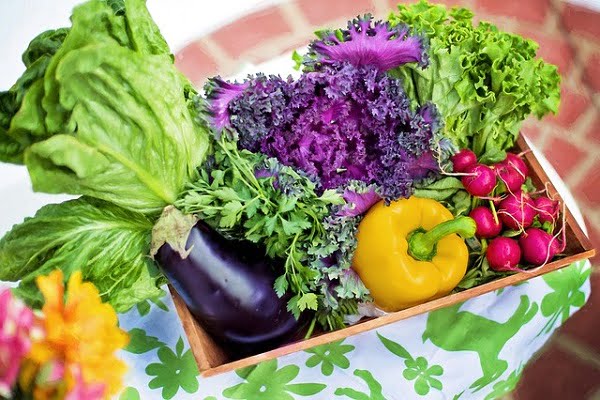Irritable Bowel Syndrome Diet (IBS diet)
- Updated on: Jun 26, 2024
- 4 min Read
- Published on Mar 4, 2019


Irritable Bowel Syndrome Diet
Irritable bowel Syndrome (IBS) is determined as drastic changes in your bowel movement. Some patient experience diarrhea whereas, some may experience severe constipation. People may experience severe symptoms such as abdominal pain and cramps, which can even disturb their daily routine activities. IBS affects 1 in every 10 individuals in the United States.
Irritable bowel syndrome affects the digestion of food, so my changing your diet, IBS symptoms and bowel movement can be maintained. Dietary changes are one of the most easy and effective ways for treating patients with Irritable bowel syndrome. Doctors have designed a specialized diet, known as an IBS diet.
Each individual is different, so each patient may experience certain symptoms. Certain food can affect or benefit an IBS patient, so it is essential to consult your doctor before beginning with a specific irritable bowel syndrome diet. The National Institute of Health states that by drinking plenty of water, decreasing caffeine intake and exercising regularly can help in minimizing IBS symptoms.
Read More: How Is Irritable Bowel Syndrome Treated and Managed?
Read More: Understanding and Managing Your IBS Pain
An irritable bowel syndrome diet helps in decreasing the frequency and severity of troubling symptoms. The following dietary changes can be made in an IBS diet:
High-fiber Diet
Insoluble Fiber is one of the nutrient constituents which adds bulk to your stool and helps in easing bowel movement. Some common examples of insoluble fibers include whole grains, nuts, tomatoes, broccoli, cabbage and raisin.
According to the National Institute of Diabetes and Digestive and Kidney Diseases, each person should consume 20 to 35 grams of fiber per day. But most people only eat 5-14 grams of fiber in a day.
You should not drastically increase the intake of fiber in your diet. It can lead to gas, bloating and alleviate other IBS symptoms. It is advisable to slowly increase fiber intake, about 2-3 grams of fiber should be added in your diet.
Some fiber-rich foods which prevent constipation include fruits, vegetables and whole grains. If you experience bloating due to increase in amount of fiber, you should eat soluble fibers such as fruits and vegetables, rather than whole grains.
Low-fiber Diet
Increase in fiber intake is helpful for some people with IBS, whereas those suffering from severe gas and diarrhea should not increase their fiber intake, as it can worsen their symptoms. Such individuals can try consuming soluble fibers, such as apples, carrots, berries and oatmeal. Soluble fibers have the tendency to dissolve in water, rather than adding bulk to stool.
You can try eating anti-diarrheal medications just 30 minutes before consuming fiber to reduce its effects. This method is effective when you eat in restaurants or are going on trips or vacations. These medications should be taken on regular basis, if not recommended by a doctor.
Gluten-free Diet
Gluten is a protein found mainly in bread and pasta. Those who are tolerant to gluten should follow a gluten-free diet to prevent damage to their intestines. Patients intolerant or sensitive to gluten, have the tendency to develop irritable bowel syndrome. These patients should follow a gluten-free diet to avoid upsurge of their symptoms.
You should avoid rye, barley and wheat in your diet and rather consume certain gluten-free products such as bread, pasta, cereals etc.
Elimination Diet
An elimination diet involves avoiding certain foods from your diet for an extendable period of time. This elimination of food can significantly improve your IBS symptoms. Studies from the International Foundation for Functional Gastrointestinal Disorders (IFFGD) prove that some common foods should be present in an IBS patient’s diet. These include coffee, chocolate, nuts, and insoluble fibers.
If you find any other food item which alleviates your symptoms, you can try avoiding it for 12 weeks and observe changes in your symptoms. You can repeat this activity for other troubling food products also.
Low-fat Diet
Consuming a diet rich in fats can increase the risk of certain lifestyle disorder, such as obesity, heart problems etc. High-fat diet can also affect irritable bowel syndrome patients. These foods contain large amount of fat and low amount of fiber, which can aggravate constipation in IBS patients.
The Cleveland clinic also proves that fatty food are harmful for mixed IBS patients, they can increase constipation and diarrhea. These patients are advised to follow a low-fat diet to improve their symptoms. They can consume lean meat, vegetables, fruits, low-fat dairy products and grains.
Low FODMAP Diet
FODMAP means fermentable oligosaccharides, disaccharides, monosaccharide, and polyols. These are short-chain carbohydrates which are prevalent in certain foods. Some common example includes:
- Oligosaccharides: fructans and galactooligosaccharides (GOS)
- Disaccharides: lactose
- Monosaccharides: fructose
- Polyols: sorbitol and mannitol
FODMAP are those carbohydrates which are difficult to digest by the small intestine. They have the capability to add more water to your bowel, leading to gas, diarrhea and bloating symptoms in IBS patients.
If you restrict or limit your intake of high FODMAP products for 6-8 weeks, it can improve your IBS symptoms. Studies state that 76% patient’s observe improvement in their symptoms after following a low FODMAP diet.
Not all carbohydrates are classified as FODMAPs. You should avoid the right type of carbohydrates to attain best results. Try to avoid the following foods:
- Milk, ice cream, cheese, yogurt, as they contain large amount of lactose
- Certain fruits such as peaches, mangoes, watermelon, pears, cherries, plums, apples and nectarines
- Canned fruits or large amounts of fruit juice or dried fruit
- Legumes such as chickpeas, kidney beans etc.
- High-fructose corn syrup, agave nectar and honey
- Sweeteners such candy and gum, as they contain mannitol, sorbitol, xylitol and maltitol
- Wheat and rye-based products such as bread, cereals, pasta and soy products
- Nuts such as cashews and pistachios
- Certain vegetables such as artichoke, onions, asparagus, lentils, broccoli, cauliflower, Brussels sprouts, garlic and mushrooms
You should consume a low FODMAP diet for a few weeks and observe changes in your symptoms. If your symptoms improve, then your doctor may slowly introduce these FODMAP products in your diet. This way you can consume some of these products, without experiencing any IBS symptoms.
Foods to Eat with IBS
- Dairy: Lactose-free milk, rice milk, lactose-free yogurt , almond milk, coconut milk, soya milk; hard cheeses such as feta and brie
- Fruit: Bananas, blueberries, honeydew, kiwi, cantaloupe, grapefruit, lemon, strawberries lime and oranges
- Vegetables: Bamboo shoots, bean sprouts, parsnips, bok choy, carrots, cucumbers, chives, eggplant, spring onions , ginger, lettuce, olives, potatoes and turnips
- Protein: Beef, pork, eggs, tofu, chicken and fish
- Nuts/seeds (limit to 10-15 each): Almonds, pine nuts, macadamia, peanuts and walnuts
- Grain: Oat, oat bran, gluten-free pasta, rice bran, such as rice, corn, white rice, quinoa, corn flour and quinoa
Before starting with a strict elimination diet, consult your dietician first to ensure intake of adequate amount of nutrients on a daily basis.












